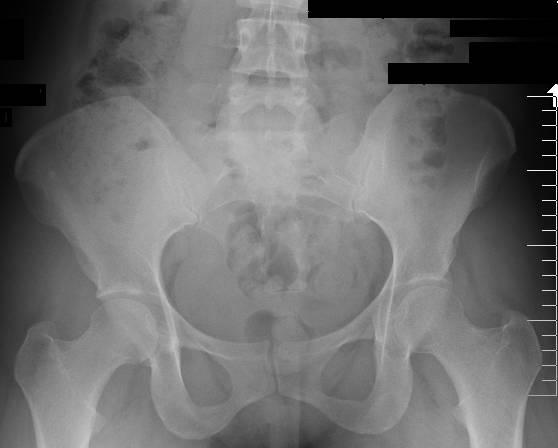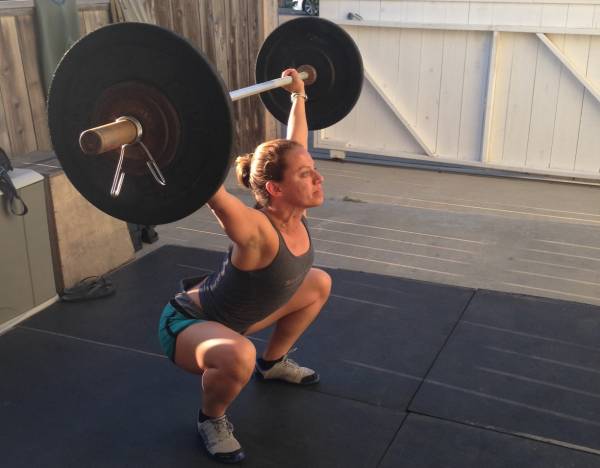When I was 27 years old, I was in a wheelchair for almost a year. I couldn’t walk because of an unexpected onset of excruciating pain in my left hip. I never had a fall or an accident. The hip pain just started one day and continued to get worse over time, until eventually the pain levels were a constant eight out of ten.
Desperate for a reprieve from the pain, I tried painkillers, but even the most creative concoctions offered no relief. There was no position of comfort for me, sitting and lying down were just the lesser of evils. Eventually I was confined to being pushed around in a wheelchair because even the simple act of wheeling myself aggravated my hip.
RELATED: 2 Causes of Hip Pain and How to Treat Them
My Downward Spiral Into Pain
Rewind to before this all started. My whole life I was active and into sports. At the time, I was in school studying to get my EMT license to become a firefighter. I was also an avid surfer and part-time personal trainer. To be confined to a wheelchair and in chronic pain was nothing short of catastrophic and sidelined much of what I had going on in my life.
In an effort to get better, I consulted with over twenty healthcare professionals, including hip surgeons across the country. I sought every form of medical treatment under the sun, and ended up in a downward spiral that went something like this: At the first onset of hip pain I went to see a sports medicine doctor who told me to stay off of my hip and rest. Repeat visits to a chiropractor yielded no long-term relief. Six months later, I was worse and began aggressively persuing a diagnosis for my symptoms.
RELATED: Healing Choices, Part 2: Choosing the Right Treatment
When Medical Practitioners Can’t Help
As my hip pain worsened, and I went from walking to being on crutches to being in a wheelchair, I visited orthopedic surgeons, a neurologist, plastic surgeons, primary care physicians, a nurse practitioner, a psychiatrist, physical therapists, an osteopath, massage therapists, chiropractors, acupuncturists, spiritual healers and energy workers. I was scanned, poked and prodded in every way imaginable with MRIs, MRIs with contrast, scopes, CAT scans and X-rays. I took everything I was prescribed including anti-inflammatories, painkillers, anti-nausea medication to counteract the nausea that resulted from the painkillers, and antidepressants.
“The one thing all of my doctors overlooked was that my body was severely out of alignment.”
After all was said and done, the diagnosis was femoroacetabular impingement with labral tear. In other words, the bones of my hip were coming in contact with one another, resulting in cartilage damage. But after arthroscopic surgery to my left hip, done by a specialist in Los Angeles, I was still in just as much pain as before, and left wondering why I had this problem in the first place. This was the last straw for me.
The one thing all of my doctors overlooked was that my body was severely out of alignment. One shoulder and one hip were higher than the other, and my entire body rotated towards the right.
 X-ray of my hip, which shows a misaligned pelvis and spine.
X-ray of my hip, which shows a misaligned pelvis and spine.
The Cause: Breast Implants
How did I get to be so out of alignment? Breast implants.
I had a breast augmentation in 2006, and that is when I started having problems in my back, knees, and ankles that I had never had before. My body was compensating so much after the implants were put in, that the mechanics of my hip joint were totally thrown out of whack.
Now let me take a minute to pause, and let you digest what I just said. Yes, breast implants.
RELATED: Breast Augmentation and the Athlete: What Women Need to Know
Now, let me be clear about a few things before I go on, because I know what you might be thinking. First of all, they were not huge, but the implants were big enough that they caused negative changes to the position of my shoulder girdle and upper back, which in turn affected the rest of my body. Secondly, no, I did not have a leak or chemical reaction to silicone. My symptoms were entirely alignment based. Third, this is not an anti-breast implant article.

Posture photos from when I was in a wheelchair.
Getting breast implants is a personal choice that a person makes based on many different motivating factors. Although I can vouch for the negative impact breast implants can have on a person’s posture, there are many women that rock implants without ever having problems.
The Solution: Posture Alignment Therapy
So, you might be wondering how on earth my doctor came up with the possibility that the implants might be the problem. Well, none of my doctors came up with this theory. I did. In fact, when I suggested it to all of the doctors I was working with, they dismissed my theory as entirely impossible.
“My symptoms didn’t just magically disappear. It took a great deal of work on my part post surgery to coax my shoulders, hips, knees, and ankles back to a better alignment.”
But I knew in my gut that I needed to get the implants removed in order for my body to return to a more neutral alignment and for my hip to get better. Sure enough, after having the implants removed in 2010, my hip pain went away within weeks. I eventually resumed all of the activities that I loved and have been wheelchair free ever since.
My symptoms didn’t just magically disappear. It took a great deal of work on my part post surgery to coax my shoulders, hips, knees, and ankles back to a better alignment. The tool I used to improve the alignment of my body, and still use to keep it in a better position with gradual improvements over time, is a therapeutic exercise technique called the Egoscue Method.
RELATED: How to Banish Your Pain Faster and More Completely
This technique is also known as Posture Alignment Therapy, and through my training in this method I learned that all of the parts of the human body work together as one unit, and the human body has the ability to heal itself if given the chance. I experienced both of these things firsthand, and have made it my life’s work and passion to teach others the same.

Today a typical workout consists of weightlifting and interval training, and my hip is pain free.
I continue to practice a daily routine of Posture Alignment Therapy exercises to keep myself out of pain and functioning at my best ability. My clients have had unprecedented breakthrough results in pain relief and improved physical function using this approach, as well.
Stay tuned for my next article where I will delve into more detail on how Posture Alignment Therapy works.






